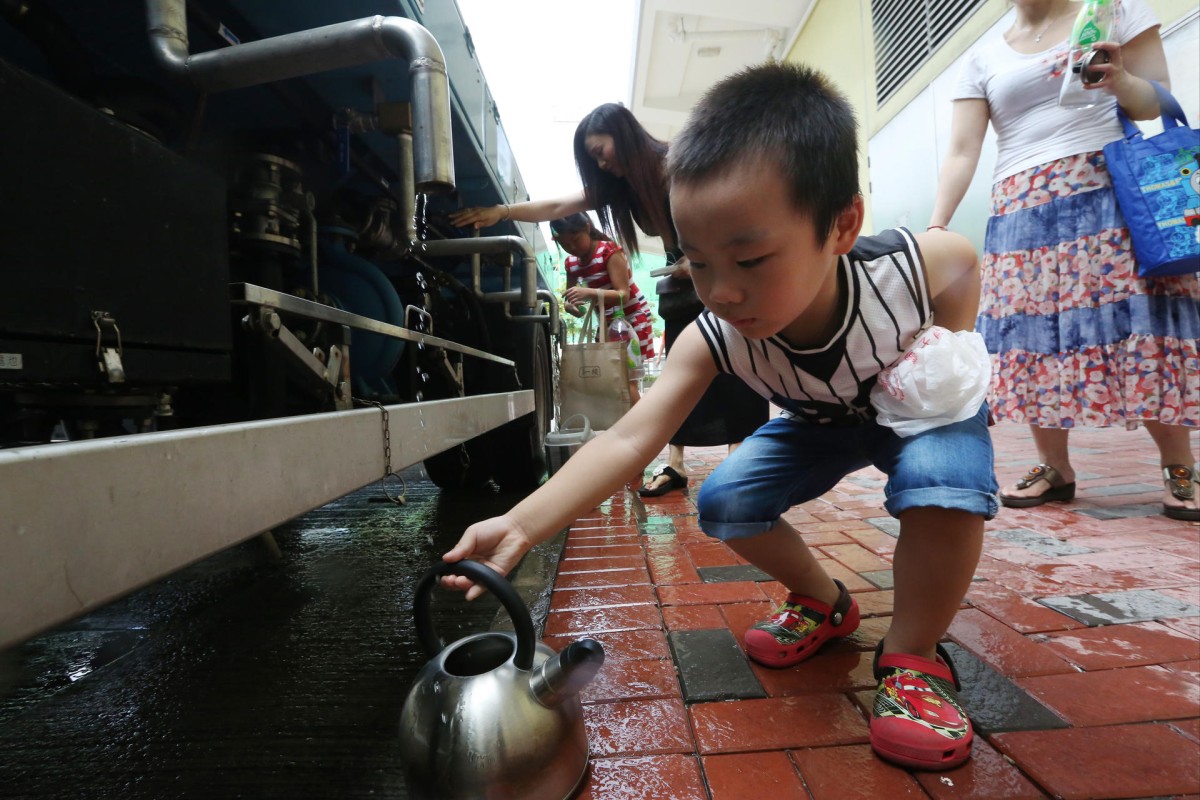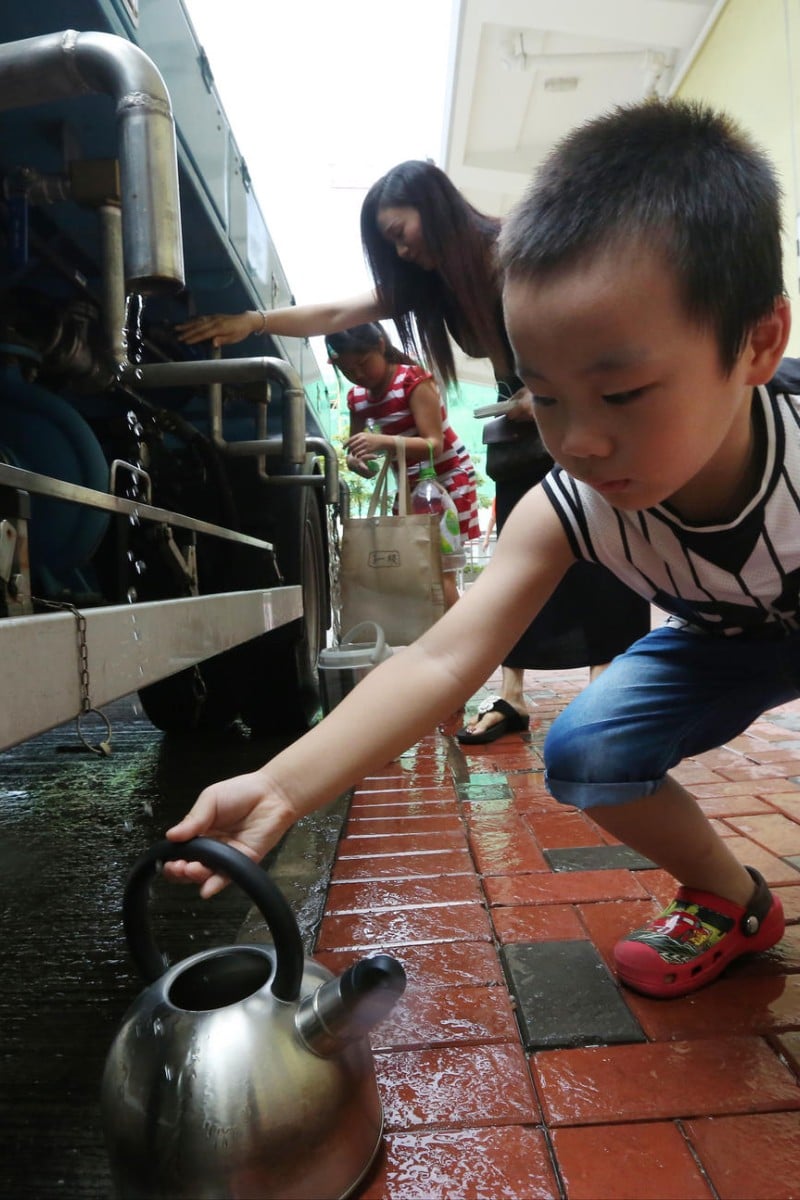 Temporary water taps have been installed at Kai Ching Estate.
Temporary water taps have been installed at Kai Ching Estate.Public housing residents and politicians are putting pressure on the government to check tap water at estates across Hong Kong as alarming levels of lead have been found in some water samples.
Their fears intensified after the government on Saturday revealed that four more public housing estates had been handled by licensed plumber Lam Tak-sum. He was responsible for pipes in Kai Ching Estate in Kowloon City, where excessive levels of lead were found in some water samples. They breached standards set by the World Health Organisation.
The four estates are in Kwai Chung, Sham Shui Po, Sha Tin and Tuen Mun.
A spokesman for the Water Supplies Department said it would work with the Housing Department to conduct water tests at the four estates and release results as soon as possible.
One of the affected blocks is Luen Yuet House. Mrs Sin, who lives there with her nine-year-old daughter, urged the government to check water pipes as soon as possible.
A Kwai Tsing district councillor, Ng Kim-sing, called on the Housing Department to conduct water tests on all new public housing estates to ensure safety.
Meanwhile, bottled water has been distributed to affected residents in Kai Ching Estate.
The department said children aged up to six, pregnant women and breastfeeding mothers would be given priority in receiving water. Others could get bottled water after registering.
"We believe the risk of poisoning is very low," said Hospital Authority consultant Dr Raymond Wong Siu-ming. "Given the level of lead found in the fresh water, the chance for people to develop symptoms is very low even if they have been drinking the water for a period of time."
Why is lead so dangerous?
So why is lead in drinking water bad for you?
- Lead is a chemical that builds up in soft tissues and bones. Symptoms may not show up until the blood contains high levels of lead.
- This can damage the nervous system, especially in young children, and result in brain disorders and poor coordination.
- Even low-level exposure to lead has been shown to cause developmental delays and learning difficulties in children.
- Young people may suffer hearing loss, digestive issues, irritability and sluggishness.
- Adults may suffer increased blood pressure, headaches, abdominal pain, memory loss, joint pain and weakness in fingers, wrists or ankles.
- Lead in the bloodstream can damage red blood cells so they can't carry as much oxygen, causing anaemia.
- Lead usually ends up in the bones where it can limit calcium absorption.
